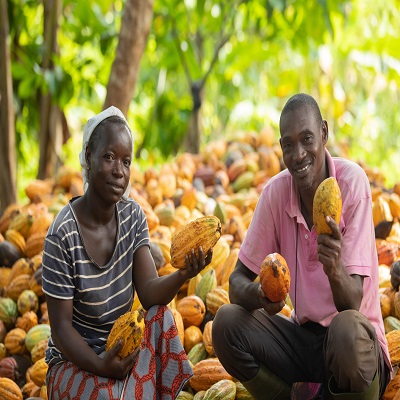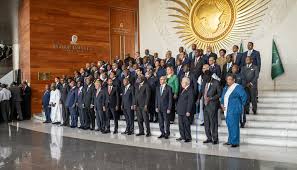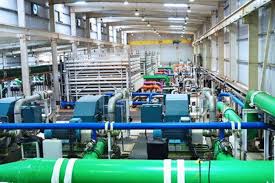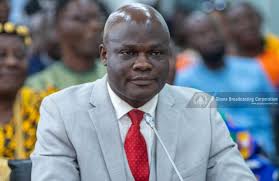Farmers and workers in Africa, Middle East meet in Accra for Fairtrade Africa General Assembly
Farmers and workers in Africa, Middle East meet in Accra for Fairtrade Africa General Assembly

Fairtrade Africa has organised its General Assembly (GA) on the 26th of August 2022 in Accra, Ghana for Fairtrade-certified producer organisations across the continent. GA is the highest decision-making body of Fairtrade Africa, constituted by representatives of producer organisations across Africa, who meet annually to deliberate on topics related to trade, market opportunities, sustainable production, advocacy for structural and institutional changes, living income, living wages among others, and to take key decisions to advance and empower farmers and workers.
The event brought about 60 delegates from the Middle East and North Africa Region, West Africa Region, Southern Africa Region, East, and Central African Region, as well as Fairtrade Africa’s 7-member board.
Prior to the GA, a field visit was organised to Fairtrade producer organisations Fanteakwa Farmers Union, ABOCFA Cooperative who are cocoa producers, Golden Exotics Ltd, and Volta River Estates Ltd, producers and exporters of Fairtrade certified bananas, and Bomarts Farm Limited, processors of mango, pineapple, and coconut.
The system of Fairtrade is unique in its governance approach. Farmers and workers own 50% of Fairtrade International. Fairtrade Africa is 100% owned by producers. Fairtrade is the only certification scheme where farmers have total ownership. Unlike other sustainability labels, which work as separate entities for farmers, Fairtrade is largely owned by the producers themselves, empowering producers and giving them a voice in decision-making.
Speaking at the Opening of the General Assembly, Board Chair of Fairtrade Africa, Mr. Benjamin Kouame mentioned the important and strategic role the GA plays in driving the strategic direction of Fairtrade Africa towards its mission and purpose of empowering producers to enjoy sustainable livelihoods, fulfill their potential and decide on their future.
On his part Executive Director, Isaac Tongola said: “At Fairtrade, we believe in transforming producer organisations or farmer cooperatives to be viable business entities by focusing on farm business models, data and record management, strategic planning, as well as supporting producers through different programmes, projects, and partnerships to improve their access to market, agri-tech, innovation, income diversification and value addition on their produce, in line with our 2021- 2025 Strategic Plan”.
The meeting also allowed for the review of the governance footprints as well as the impact of Fairtrade across the continent through the use of Fairtrade premiums and other programmatic and project interventions that have helped to build strong producer organisations, transforming them into viable business entities to access the agricultural commodity market.
Fairtrade impact on the agricultural sector
Through Fairtrade premiums, producers have been able to transform their economies. Fairtrade premiums have supported community development initiatives. Fairtrade premium is a tool for development, helping farmers to contribute to their communities, and invest in crop production and their cooperatives. The Fairtrade premium is paid directly to the cooperatives. Members democratically decide how the funds will be used. Fairtrade believe that farmers are the best individuals who can decide on their future by contributing to the development of their communities.
Through the Fairtrade premium, producer organisations undertake development projects such as the construction or renovation of schools, clinics, water systems, toilet facilities, teachers’ bungalows, scholarship programmes, and office complexes. Some farmers have also been able to sign on their members to health insurance and also providing farm inputs. Farmers also donate teaching and learning materials to schools. This initiative helps to put the farmers at the center of the development of their communities.
Through its Living Income strategy which was developed in 2017, Fairtrade in partnership with its commercial partners has undertaken several programmatic interventions that ensure that the root causes of poverty are addressed for smallholder farmers. The Living Wage strategy for hired labour workers also ensures decent wages for workers while also advocating for decent working conditions and respect for the rights of workers.
Building strong producer organisations
Through expert and capacity building, Fairtrade Africa has been able to introduce programmes like the West Africa Cocoa Programme, Mondelelez Climate Change and Organisational Strengthening Project, Equity 2 Project, Climate Academy, Sankofa Project, IMS Data Mapping Projects, Recover Africa Project Farm Business School, Living Income Projects, Women School of Leadership (WSOL) and Dignified Opportunities Nurtured Through Trade Projects, among others in different countries across the continent. These projects have provided support to producer organisations to consider agriculture, not only as a farming activity but as an economically viable business enterprise with a strong focus on management, adoption of policies, social interventions, sales, and marketing techniques.
For producers like Mr. Adjei of the Fanteakwa Farmers Union in Ghana, Fairtrade has been a great contributor to the development of his producer organisation. “” We have benefitted a lot from so many projects at Fairtrade. Through trainings on good agricultural practices, one-on-one coaching with our members, financial management trainings, and the introduction of Village Savings and Loans Associations (VSLAs), my cooperative members have learnt a lot, and putting this knowledge into practice has helped our cooperative and individual members, he said”.
Supporting farmers to build sustainable value chains
Fairtrade recently launched its first-ever guide for farmers across the world on Human Rights, Environment, and Due Diligence (HREDD). Most of the producer organisation across Africa export their produce to the Global North markets including Europe. The European Commission presented its proposal for a European Union-wide HREDD regulation that urged large companies placing products on the EU market to reduce and remediate any serious negative impacts they or their supply chains have on people or the environment. The guide produced by Fairtrade aims to strengthen the position of farmers and workers in global supply chains and arm them with the know-how to influence companies on HREDD practices and have an impact on how HREDD laws are written. With this guide, and the related training and workshops Fairtrade will be implementing with farmer cooperatives across Africa, Fairtrade now provides farmers with much-needed support to make HREDD work for them. Specific HREDD activities have long been familiar to Fairtrade producer organizations who have been complying with Fairtrade Standards requirements.
Fairtrade Africa remains committed to supporting its over 1.3 million farmers and workers towards sustainable livelihoods, empowerment, and participation in key decision-making that affects their future.




